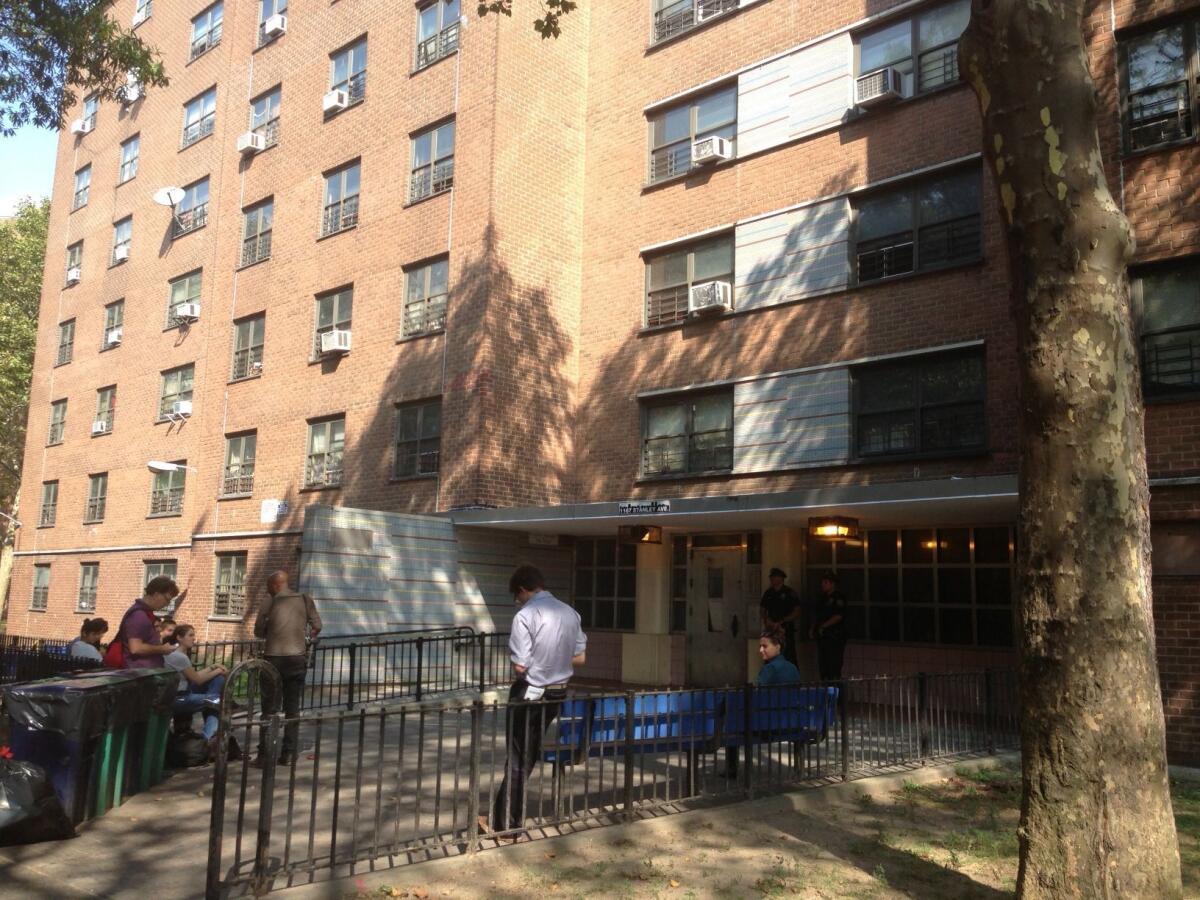Capitol shooting: Seeking clues into odd behavior of Miriam Carey

BROOKLYN, N.Y. -- She was a big mystery -- a seemingly caring mother who died after ramming her car in a highly secure area of the nationâs capital.
And because so little was known about Miriam Carey, reporters from across the country headed to New York and Connecticut, seeking clues to explain the dental hygienistâs odd behavior. When she was finally shot Thursday after leading authorities on a wild chase from the White House to Capitol Hill, her 1-year-old daughter was with her.
Miriamâs mother, Idella Carey, 68, had told ABC News on Thursday night that her daughter suffered from postpartum depression, and so reporters descended on Idella Careyâs apartment building in the Louis Pink housing project, a cluster of more than a dozen squat brick buildings set around courtyards in East New York, Brooklyn.
PHOTO GALLERY: Gunfire on Capitol Hill
On Friday, as news of Miriam Careyâs death spread, neighbors clustered around the courtyard talking and watching the three policemen who stood at the door of that apartment building to keep reporters out.
But there were few clues about Miriam Careyâs behavior at her motherâs home. Many people in the neighborhood said that the elder Carey, like many others in the project, which has seen its share of crime in recent years, kept to herself. They mentioned seeing Miriam and her two sisters visiting at times, but most neighbors were tight-lipped about the family.
âIâve known her a long time,â James Rainey said of Idella. Rainey, who has lived in a building across the courtyard for 47 years, said when he last spoke to Idella Carey a week ago, nothing seemed abnormal, and she hadnât mentioned her daughter.
Many of the younger women in the project expressed their sympathies for Miriam Carey as they pushed baby carriages across the bumpy concrete paths that lead through the project, tsk-ing at the growing crowd of reporters and camera crews.
Police, the FBI and other law enforcement had searched Miriam Careyâs ground-floor apartment building in Stamford, Conn., on Thursday night. By Friday morning, the apartment, in a sprawling beige building surrounding a common grassy area with a gazebo in the middle, was quiet again and devoid of police.
A condo maintenance worker who did not want to give his name said he knew Carey by sight and had seen her and her baby many times, usually about 8 a.m. when she would leave for work.
âThe lady seemed OK,â he said. Few other neighbors shed any light on Carey.
âItâs very private around here,â one neighbor said.
News trucks still hovered around the apartment of Careyâs sister Valarie, in the Bedford-Stuyvesant neighborhood of Brooklyn, where children rode bicycles and scooters up and down the street staring at the news crews.
Valarie Careyâs neighbors told the New York Daily News that Miriam frequently visited her sister wearing hospital scrubs, sometimes with a man in a Porsche Cayenne SUV. The neighbor said Miriam Carey had a breakdown when visiting her sister three months ago.
Miriamâs other sister, Amy Carey-Jones, lives in an apartment building on a street of brownstones in a rapidly gentrifying area of Brooklyn on the border of the Clinton Hill and Bed-Stuy neighborhoods. The street is diverse, with white, tattooed young professionals walking dogs and African American families sitting on stoops; fancy bicycles and tomato plants adorn some of the balconies.
Amy and Valarie appeared on CNN to talk about their sister; as part of their contract with anchor Anderson Cooper, they have decided not to talk to other media. In the interview they seemed unsure of what had happened.
âWeâre still trying to put the pieces together. Itâs very sudden,â Amy Carey-Jones said. âIt still doesnât seem real. And weâre just waiting for the real story as to exactly what happened to come out.â
Cooper said that, according to some authorities, drugs for schizophrenia, bipolar disorder and depression were found at Miriam Careyâs house.
After Valarie Carey said her sister was ânot a bipolar, schizophrenic individual,â Cooper followed up with other questions on the topic, according to a transcript of the show.
COOPER: âSo as far as you know, she wasnât bipolar, she wasnât schizophrenic, you believe it was postpartum depression.â
CAREY-JONES: âIt was postpartum depression with psychosis. Thatâs what her diagnosis was. And she worked very closely with her doctor to taper off the medication and just get the counseling she needed to deal with that diagnosis.â
COOPER: âHow was that manifested in her life? Was that something you saw in her life?â
CAREY-JONES: âNo, we -- it wasnât something that was displayed. It was a momentary breakdown where she had to go and have emergency care. Once she understood what the diagnosis was, she knew how to move forward. She had her challenges as a new parent, and I always spoke closely with her.
âI am a parent. I have two children. So, you know, just like anyone else she had questions and we dealt with that as a family, but there was nothing out of the ordinary.â
ALSO:Gloria Allred defends motorist injured in N.Y. chase
When to shoot? Capitol shooting is raising questions about force
Pennsylvania Gov. Tom Corbett compares gay marriage to incest
Semuels reported from Brooklyn, Susman from Connecticut.
Twitter: @AlanaSemuels
More to Read
Sign up for Essential California
The most important California stories and recommendations in your inbox every morning.
You may occasionally receive promotional content from the Los Angeles Times.












